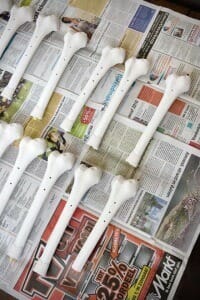Tate Trustees will be reviewing the BP sponsorship agreement in 2016.
– said Tate director Nicholas Serota in response to members’ questioning of the BP relationship. This means we have approximately a year to persuade Tate (as well as three other institutions – British Museum, Royal Opera House, and National Portrait Gallery) to take the challenge of climate change seriously and drop oil sponsorship.
Members have been raising questions over BP for years. Liberate Tate have published a more extensive transcript of last week’s meeting, but here are my personal highlights.
1. Members give 16.8 times as much as BP
Jon Snow, Chair of Tate Members, proudly began his speech by revealing their financial contribution for this year: £8.4 million.
#TateMembers donated £8.4m in 2013-14 – and BP only c.£500,000. But who has more power?
— Liberate Tate (@liberatetate) December 5, 2014
We still don’t know exactly how much BP gives – and two members asked! – but based on available information, BP’s contribution is likely approximately 1/17th of that of the members.
Jon Snow repeatedly stated that
There will be increased opportunities in the next year for Tate Members to get involved in the actual governance of Tate.
2. Does Members’ power extend to sponsorship?
Well, it might just. Tate’s Ethics Committee (consisting currently of Trustees and ex-Trustees) reviews the ethical implications of sponsorship agreements. Tate Member:
“Would Tate Members Council consider recommending the idea of a Tate member being elected here each to be appointed to the Tate Ethics committee? The Ethics Committee already has three trustees on it but has co-opted two ex-Trustees as well, why not appoint suitable Tate members through nomination of the membership itself?”
Serota:
“That’s a perfectly responsible suggestion – the Trustees do co-opt individuals, they have done so – and I will put that proposal to them.”
3. Desmond Tutu’s words
Another member drew applause around the room with these words.
“I’ve been a Tate member for over four years now, and moments spent in these galleries have been some of the most joyful of my life – thank you for that. The reason why I wanted to come today was because of an article written in September by Archbishop Desmond Tutu. I’d like to read out a short section of it:
‘I fought Apartheid. Now climate change is our global enemy… Reducing our carbon footprint is not just a technical scientific necessity; it has also emerged as the human rights challenge of our time… The most devastating effects of climate change – deadly storms, heat waves, droughts, rising food prices and the advent of climate refugees – are already being visited on the world’s poor. Those who have no involvement in creating the problem are the most affected, while those with the capacity to arrest the slide dither, it is a deep injustice… Just as we argued in the 1980s that those who conducted business with apartheid South Africa were aiding and abetting an immoral system, we can say that nobody should profit from the rising temperatures, seas and human suffering caused by the burning of fossil fuels. We can encourage more of our universities and municipalities, foundations, corporations, individuals and cultural institutions to cut their ties to the fossil fuel industry.‘
I find this very persuasive and very moving, and it’s what made me want to come here tonight.
I know that this is a complex issue and it is incredibly difficult to raise money for the arts, especially in a climate of austerity. But my argument would be that, following this article and the cultural conversation about it, that the Tate’s current position – i.e. we don’t take money from tobacco companies, we don’t take it from arms dealers, but we do from fossil fuel companies – has become outdated.”
4. The art

They tried to shut me up in tradition
– said artist Mechac Gaba, whose response – the work Museum of Contemporary African Art – was purchased by Tate with help from Tate Members. The artwork is a collection of rooms – Library, Museum Shop, Restaurant, Humanist Space, Marriage Room. Together the objects in the rooms question what a museum is, what Western expectations of African art are, and what kind of space a museum can be.
Presenting this work alongside others by Dayanita Singh and Simon Starling, curator Kerryn Greenberg noted,
A large part of the point of Tate is to make us question what art could be now.
…and that’s also exactly what Liberate Tate does:
5. The gift
Member:
“This is a seasonal gift as it was the Turner Prize this week. I want to offer this gift to the Members, from members, and I’d like to ask Jon Snow to accept it on behalf of the members as a group. It is a painting by Conrad Atkinson who has 10 artworks in the Tate collection. He offered prints to raise funds for the group Liberate Tate, who have made a series of unsanctioned performances and interventions at Tate in opposition to BP. At Liberate Tate we thought it might be a good contribution to the Members Room – to have some discussion point of the issue in that space.”

Jon Snow:
“I’m extremely touched that you have gone to these enormous lengths – not least the frame which is actually rather quality! It is number 36 of an edition of 75.”
Member:
“Will you display it in the Members’ Room?”
Jon Snow:
It is on display.
PS. Please sign and share this petition calling on Tate, National Portrait Gallery, British Museum, and Royal Opera House to drop BP sponsorship.